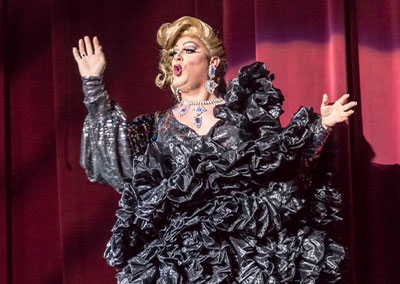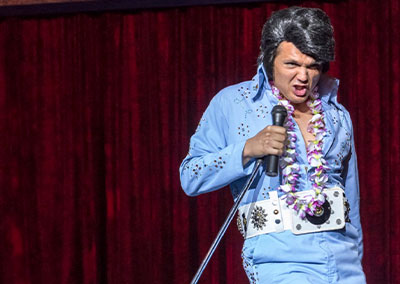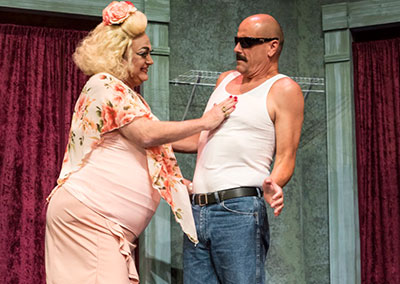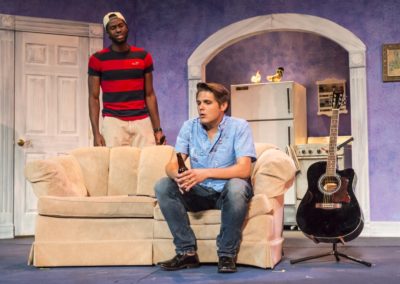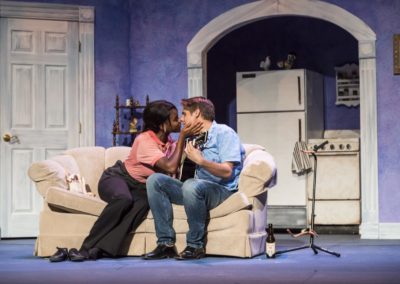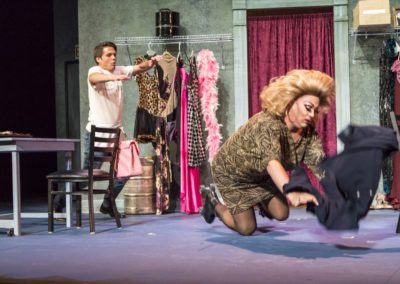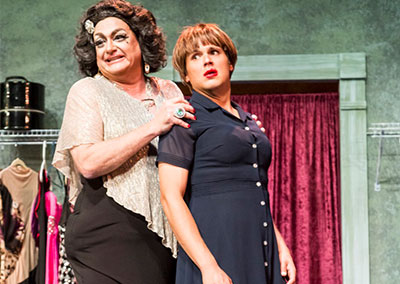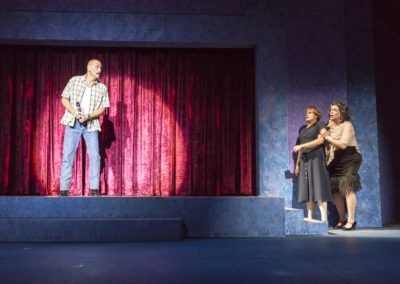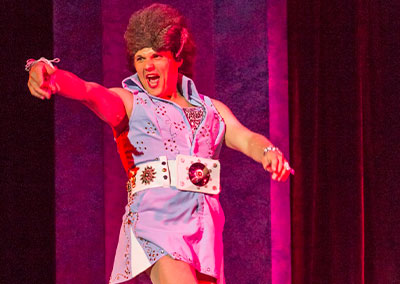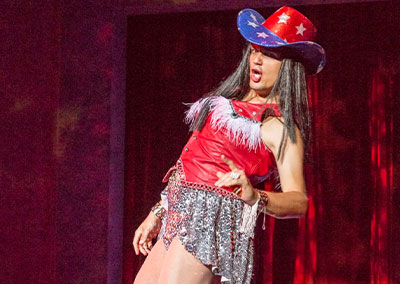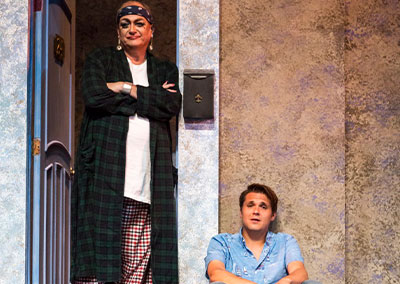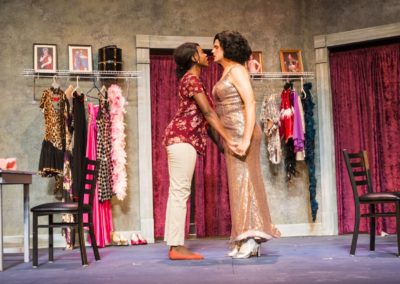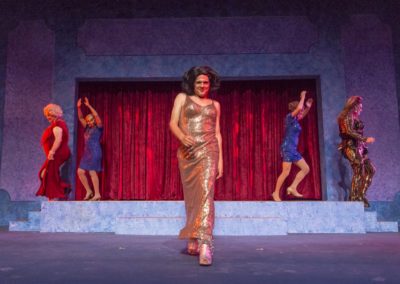The Legend of Georgia McBride by Matthew Lopez
Kansas Repertory TheatreDirector's Program Notes
Concept Statement for The Legend of Georgia McBride
Mathew Lopez’s The Legend of Georgia McBride is a raucous comedy replete with spectacle, spritz, sass, and an appropriate dose of sentiment. Centering on the personal development of a handsome protagonist, Casey, whose greatest talent initially appears to be impersonating Elvis, Lopez’s “fabulously” feel-good story is written in the key of diversity and inclusion. We trace Casey’s journey from erstwhile impersonator of the King, to inadvertently becoming a successful drag queen, whose persona, the titular Georgia McBride, changes his professional and personal lives. With respect to the latter, Casey is married to Jo, a no-nonsense African American woman whose dutiful maturity counterpoises her husband’s boyishness and lack of responsibility. From paying the rent to frivolously responding to his newfound role as an expecting father, Casey appears on the fast track to failure in his low-level performance career as well as his marriage.
It isn’t until Casey transitions into Georgia McBride that hope prevails and his identity as a caring, sensitive, loving, and responsible friend, colleague, husband, and future father emerges. Our charming—if flawed¾hero matures in real time before us, as we are treated to a dramatic world filled with love, acceptance, shade, and a whole lot of fun! Assisted by the drag legend herself, Miss Tracy Mills, Casey transforms into Georgia, thereby facilitating Lopez’s parable of acceptance. It is of course intentional that Jo is African American, Tracy and Rexy gay, and Casey a straight white dude with an identity complex. Each of these characters—as well as the supporting cast (Jason, Rexy, and Eddie)¾all undergo significant change in their perceptions and acceptance of others: Jo overcomes her initial resistance to Georgia McBride; Eddie and Rexy learn to appreciate those who don’t share their sexual orientation, and most significantly, Casey/Georgia evolves into a responsible husband and future father.
These transformations constitute the leitmotiv of Lopez’s play and form the basis for our production. Transformation will not only apply to a dramaturgical interpretation of the text, but likewise guide our design and directorial concepts. Just as Casey and the other characters all demonstrably change, our production will transform from the performance space at Eddie’s cabaret to the dressing room and other locales with fluidity and sparkle. Casey will transform before the audience as he assumes Georgia’s costume and persona, before convincing us through his brilliant lip-syncing of Piaf and others that he is a woman. A drag queen in the richest sense, he possesses Georgia as if she were a part of himself, an alter ego, one for whom he has an unmistakable connection, which is of course the underlying message to Lopez’s heartwarming spectacle.
To facilitate these transformations and transitions, I would like to use the revolve as well as extend the forestage into the audience, with a rake not unlike what we used recently for When the Rain Stops Falling. In doing so, we want to clearly distinguish between the cabaret’s performance space, backstage, the dressing rooms, and the two domestic locales: Jo/Casey’s apartment and the threshold of Bobby’s (Tracy Mills) front door. Lights will be crucial in capturing the lively, fluid, spectacular, fantastic, Vegas-styled motifs constituting the “gay” world of Eddies, which of course will juxtapose the humble confines of the two domestic locations. Costumes will likewise reflect the performative and pedestrian sectors of play’s two environments (the performative and the domestic). By clearly establishing these distinct worlds, we can better bring them together through the transformative processes that give The Legend of Georgia McBride its delicious appeal.
Types of Drag to Consider for Costumes:
- Club
- Camp
- Pageant
Cast & Design Team
- Choreographer:
- Jake Fisher
- Set Design:
- Dennis Christilles
- Costume Design:
- Kelly Vogel
- Lighting Design:
- Ann Sitzman/Rana Esfandiary
- Hair/Makeup Design:
- Robby Crone
- Stage Manager:
- Emily Hunsucker
- Dramaturg:
- Lusie Cuskey
- Cast:
- Casey: Duncan McIntyre
- Jo: Gabrielle Smith
- Tracy Mills: Phil Fiorini
- Rexey: Brandan Eisman
- Jason: Leon Cambridge
- Eddie: Brian Patrick Miller

